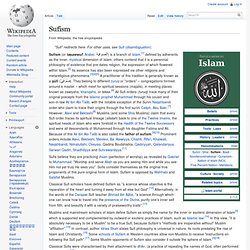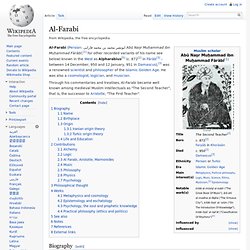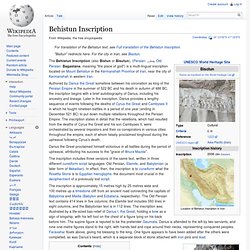

Sufism. Sufism (or taṣawwuf; Arabic: الصوفية) is a branch of Islam,[1] defined by adherents as the inner, mystical dimension of Islam; others contend that it is a perennial philosophy of existence that pre-dates religion, the expression of which flowered within Islam.[2] Its essence has also been expressed via other religions and metareligious phenomena.[3][4][5] A practitioner of this tradition is generally known as a ṣūfī (صُوفِيّ).

Sufis believe they are practicing ihsan (perfection of worship) as revealed by Gabriel to Muhammad: "Worship and serve Allah as you are seeing Him and while you see Him not yet truly He sees you". Sufis consider themselves as the original true proponents of this pure original form of Islam. Sufism is opposed by Wahhabi and Salafist Muslims. Classical Sufis were characterised by their attachment to dhikr, (a practice of repeating the names of God, often performed after prayers)[19] and asceticism. Etymology[edit] Two origins of the word sufi have been suggested. Al-Farabi. Al-Farabi (Persian: ابونصر محمد بن محمد فارابی Abū Naṣr Muḥammad ibn Muḥammad Fārābī;[1] for other recorded variants of his name see below) known in the West as Alpharabius[5] (c. 872[2] in Fārāb[3] – between 14 December, 950 and 12 January, 951 in Damascus),[3] was a renowned scientist and philosopher of the Islamic Golden Age.

He was also a cosmologist, logician, and musician. Through his commentaries and treatises, Al-Farabi became well known among medieval Muslim intellectuals as "The Second Teacher", that is, the successor to Aristotle, "The First Teacher". Biography[edit] From incidental accounts it is known that he spent significant time in Baghdad with Christian scholars including the cleric Yuhanna ibn Haylan, Yahya ibn Adi, and Abu Ishaq Ibrahim al-Baghdadi. He later spent time in Damascus, Syria and Egypt before returning to Damascus where he died in 950-1.[6][page needed] Name[edit] Birthplace[edit] Origin[edit] Iranian origin theory[edit] Turkic origin theory[edit]
Behistun Inscription. Coordinates: The Behistun Inscription (also Bistun or Bisutun), (Persian: بیستون, Old Persian: Bagastana, meaning "the place of god") is a multi-lingual inscription located on Mount Behistun in the Kermanshah Province of Iran, near the city of Kermanshah in western Iran.

Authored by Darius the Great sometime between his coronation as king of the Persian Empire in the summer of 522 BC and his death in autumn of 486 BC, the inscription begins with a brief autobiography of Darius, including his ancestry and lineage. Later in the inscription, Darius provides a lengthy sequence of events following the deaths of Cyrus the Great and Cambyses II in which he fought nineteen battles in a period of one year (ending in December 521 BC) to put down multiple rebellions throughout the Persian Empire. Darius the Great proclaimed himself victorious in all battles during the period of upheaval, attributing his success to the "grace of Ahura Mazda".
The route up to the inscription History[edit] See also[edit] Babylonia. Babylonia was an ancient Akkadian-speaking Semitic nation state and cultural region based in central-southern Mesopotamia (present-day Iraq).

It emerged as an independent state c. 1894 BC, with the city of Babylon as its capital. It was often involved in rivalry with its fellow Akkadian state of Assyria in northern Mesopotamia. Babylonia became the major power in the region after Hammurabi (fl. c. 1792 - 1752 BC middle chronology, or c. 1696 – 1654 BC, short chronology) created an empire out of many of the territories of the former Akkadian Empire. The Babylonian state retained the written Semitic Akkadian language for official use (the language of its native populace), despite its Amorite founders and Kassite successors not being native Akkadians. It retained the Sumerian language for religious use, but by the time Babylon was founded this was no longer a spoken language, having been wholly subsumed by Akkadian.
Periods[edit] Old Pre-Babylonian period[edit] The Empire of Hammurabi.